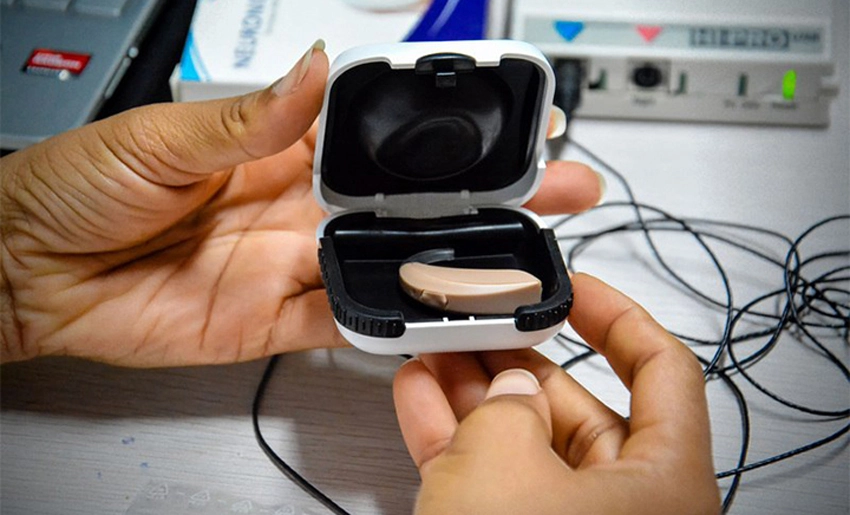Neonatal hearing screening is one of the diagnostic methods practiced in the province of Holguin for the early detection of hearing loss and timely access to treatment and counseling for patients and families.
Sandra Guris Hidalgo, head of the provincial disability program, told CNA that this test is being performed thanks to the donation of equipment from the international project MediCuba Switzerland. Which offers modern technology for this evaluation method.
She stated that this initiative has benefited the Luis Mario Cruz Cruz Hospital in Banes. Mártires de Mayari Hospital in the municipality of the same name. Guillermo Luis Fernández Hernández Vaquero Hospital in Moa. And Vladimir Ilich Lenin Hospital in the city of Holguin since 2023.
The process takes place 24 hours after birth. With the father’s informed consent, and rules out alterations or hearing loss in newborns, Guris Hidalgo stated.
The expert emphasized that the otoacoustic emission equipment also performs visual screening, and when the baby does not reach the required weight. The test is administered before hospital discharge to cover 100 percent of newborns with this noninvasive option.
Previously, this procedure was performed during the first three months. Moreover which limited the opportunity for treatment and improved quality of life. This option allows referral to the multidisciplinary team in charge of follow-up.
However, she indicated that this initial diagnosis is not definitive, and if any changes are found, the evoked potential test. A more in-depth and conclusive examination, is performed at the Octavio de la Concepción y de la Pedraja Provincial Pediatric Hospital.
Yaité Rodriguez, mother of a benefited infant, stated that the test offers greater security to the family and praised the performance of the medical staff in charge.
Holguin has a comprehensive program for hearing-related disabilities. Also which includes access to general and special education. As well as treatment with hearing aids and cochlear implants.
With information from CNA
- Installation of Photovoltaic Systems in Rural Communities in Holguin - 19 de January de 2026
- 39th City Salon Opens in Holguin - 19 de January de 2026
- Habanos Festival Among Cuba’s Most Important Tourism Events - 19 de January de 2026

